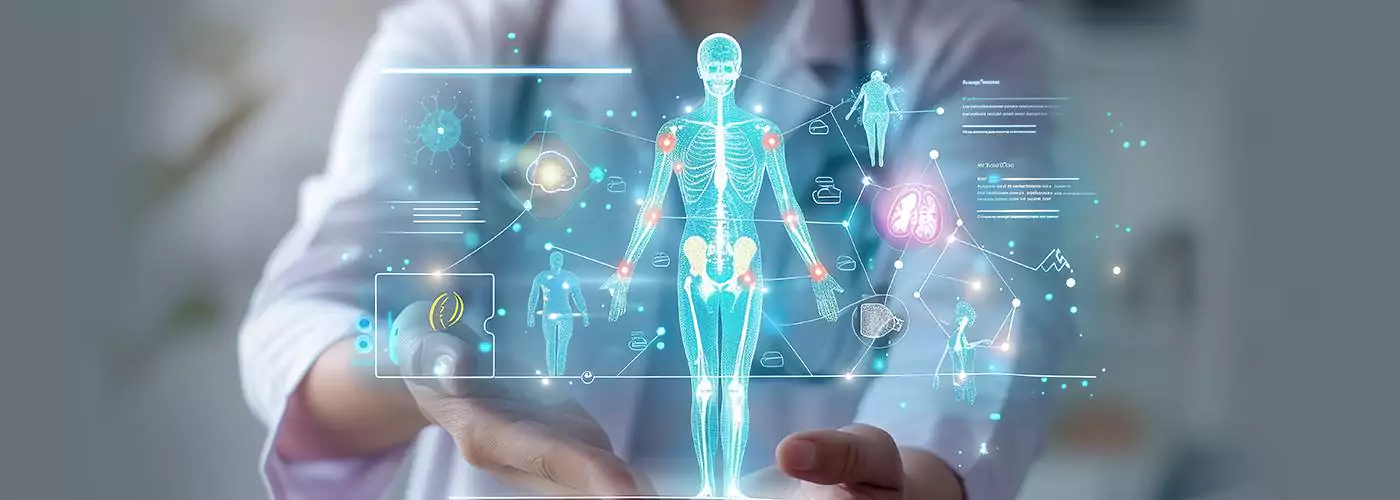The healthcare landscape is undergoing a seismic shift. Artificial intelligence (AI) is no longer a futuristic concept; it’s actively shaping the way we diagnose diseases, develop treatments, and deliver patient care. Within the realm of AI, a groundbreaking approach known for its ability to generate entirely new data is emerging as a powerful force, revolutionizing how we approach healthcare and offering exciting possibilities for a healthier future.
Unlocking New Possibilities in Healthcare
Imagine a new era in medicine where technology can create entirely new medical data, be it images, genetic sequences, or even drug compounds. This transformative capability lies at the heart of this cutting-edge branch of AI. By analyzing vast amounts of existing medical data, these AI models learn underlying patterns and relationships. They then use this knowledge to generate novel content that adheres to those patterns, essentially becoming innovative partners in healthcare.
Transforming Diagnosis and Care with Pioneering Technology
This groundbreaking approach offers a multitude of benefits that are fundamentally changing the way we approach healthcare:
- Earlier and More Accurate Diagnoses: This technology has the potential to analyze medical scans with higher accuracy, potentially leading to earlier diagnoses and improved patient outcomes.
- Personalized Treatment Plans: By analyzing a patient’s unique genetic makeup and medical history, this approach can help create personalized treatment plans. This precision medicine approach holds immense promise for improving treatment efficacy and reducing side effects.
- Drug Discovery and Development: This technology can be used to design and simulate new drug compounds, accelerating the drug discovery process and offering hope for new treatments for various diseases.
- Enhanced Clinical Trials: AI can help design and conduct more efficient and effective clinical trials. This technology can create synthetic patient data to test new drugs or therapies, reducing the reliance on real-world trials and speeding up the process.
- Improved Patient Education: This approach can personalize patient education materials, tailoring them to individual needs and learning styles. This can lead to better patient understanding of their condition and improved adherence to treatment plans.
Real-World Examples of Pioneering AI in Healthcare
- Early Detection of Cancer: This technology is being explored to analyze mammograms and identify subtle signs of breast cancer, potentially leading to earlier detection and improved survival rates.
- Personalized Cancer Treatment: AI is being used to analyze a patient’s tumor and generate personalized treatment plans that target specific mutations, leading to more effective therapies.
- Drug Discovery for Rare Diseases: This technology can help identify new drug targets for rare diseases where traditional methods may be less effective, offering hope for patients with limited treatment options.
The Future of Pioneering AI in Healthcare
This groundbreaking approach is still in its early stages, but its potential to revolutionize healthcare is vast. As the technology matures and becomes more widely adopted, we can expect to see even more groundbreaking applications emerge. Here’s what the future holds:
- AI-powered diagnostics and treatment becoming the norm.
- Development of more effective and personalized treatments for various diseases.
- Improved patient outcomes and a healthier future for all.
Challenges and Considerations
While this cutting-edge approach offers immense promise, there are challenges to address:
- Data security and privacy: Ensuring patient data remains secure and protected is paramount.
- Regulatory frameworks: Establishing clear guidelines for the development and use of this technology in healthcare is crucial.
- Integration with existing healthcare systems: Seamless integration of AI tools into existing workflows is essential for successful adoption.
The Road Ahead
By overcoming these challenges and fostering collaboration between healthcare professionals and AI developers, this groundbreaking approach has the potential to transform healthcare for the better. As we move forward, ethical considerations, responsible development, and a focus on patient well-being will be key to unlocking the full potential of this revolutionary technology. This technology is not a replacement for human expertise; it’s a powerful tool that can empower healthcare professionals to deliver better care and improve the lives of patients worldwide.




